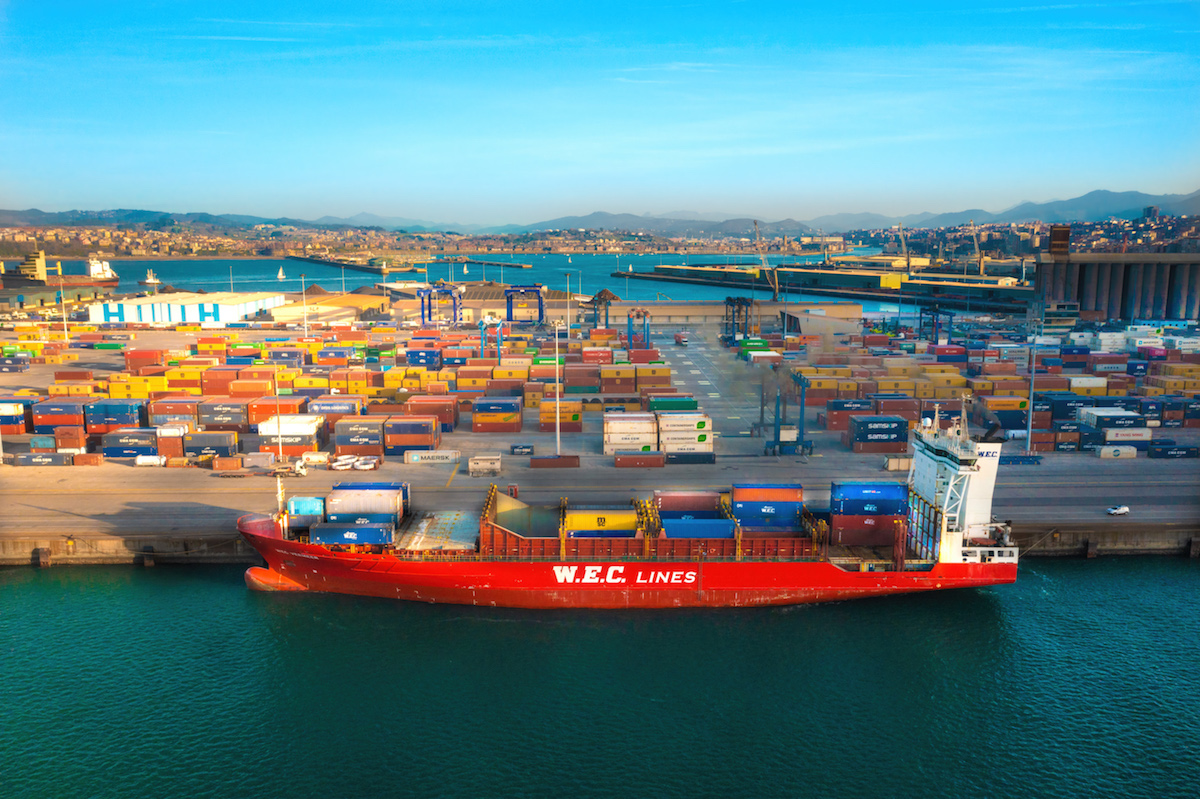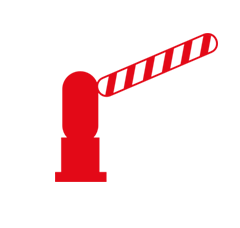Bilbao is a hub for this shipping company, connecting Spain with Northern Europe, the United Kingdom, Morocco and the Canary Islands, with weekly maritime container services and rail connections.
This Friday, 23 February, W.E.C. Lines and the Port Authority of Bilbao brought together customers, collaborators and institutions to officially present the maritime transport services the shipping company provides between the Port of Bilbao and other European ports.
Seventeen years ago, the Dutch shipping company W.E.C. Lines opened its first office in Spain in Bilbao, to be followed by offices in Barcelona, Valencia, Madrid, Vigo and the Canary Islands, and later, Gijón. In the last three years, W.E.C. Lines has launched several direct short sea connections from Bilbao to other parts of Europe, with the support of and in close cooperation with the Port of Bilbao.
W.E.C. Lines was originally best known, in the Spanish market, as an expert service provider for the Canary Islands and Casablanca. However, in view of the growing demand for experts in short sea shipping covering the United Kingdom and Northern Europe, the company began to provide this service. Nowadays, it runs several weekly services connecting inland Spain with the UK and north-west Europe, Morocco and the Canary Islands through its hub in Bilbao, which has become one of its main hubs in Spain.
The event, held at the OLATUA Passenger Terminal in Getxo, was attended by Mr. Ricardo Barkala, President of the Port Authority of Bilbao, and Mr. Caesar Luikenaar, Managing Director of W.E.C. Lines, as well as by representatives from other leading institutions and organisations in Spanish and Basque International Trade, exporters and importers, logistics companies, collaborators and, of course, the commercial and management teams of W.E.C. Lines and the Port Authority of Bilbao.
Caesar Luikenaar, Managing Director of W.E.C. Lines, stressed the importance of reaching net zero emissions by 2050: “In 2024 and 2025 we are rolling out a fleet modernisation plan to make our 11 owned vessels more sustainable”. This is just one of many initiatives being taken to achieve the company’s goals and Bilbao will continue to be vital to W.E.C Lines’ operations. “Bilbao is our gateway from Morocco, Spain and Portugal to the UK and the rest of Europe,” Mr. Luikenaar added. “We see many more opportunities for growth in the Iberian Peninsula, with a focus on Bilbao in particular.”
For his part, Ricardo Barkala, President of the Port Authority, highlighted the importance of Bilbao as a hub for Spain to Northern Europe, its commitment to sustainability and intermodality, and the important role that W.E.C. Lines plays in this. “We are the main port in the north of Spain in short sea shipping traffic and, at the same time, we have the highest share of rail transport among the ports in the system. We are firmly committed to providing our customers with an efficient, competitive and increasingly sustainable service and, to achieve this, we need the collaboration of shipping companies such as W.E.C. Lines that are committed to a serious and multidisciplinary port such as ours. W.E.C. Lines has been supporting foreign trade from Bilbao for more than twenty years, reinventing itself, growing and taking risks. In these endeavours, W.E.C. Lines has, and will continue to have, our support and gratitude”.

Mr. Barkala also reminded those present that the Port of Bilbao is currently in the process of electrifying its docks, so that ships can connect to the onshore power grid and switch off their auxiliary engines, thereby reducing CO2 emissions and noise and vibration levels. The BilbOPS initiative, expected to come into operation in 2026, requires an investment of EUR 78 million, of which 14.2 million will be co-funded by the European Commission under the CEF Transport 2021-2027 funding programme. “This project also requires that 20% of the energy produced comes from renewable sources, and we expect this percentage to increase to 50% in 2028”, he added.
Commitment to sustainability and intermodality
Despite the many changes within the sector and the global challenges that W.E.C. Lines is facing and managing (Covid, Brexit, strikes, wars, etc.), the shipping line has continued to expand its connections to and from Bilbao. “One of the reasons for this expansion,” they explain, “is that agencies and governments alike are pushing the green agenda, while customers are looking for reliable and stable alternatives to take cargo off the road and which support their own sustainability goals”.
As well as its maritime operations, W.E.C. Lines is continually expanding its service network by adding new intermodal connections. In the case of Spain, this has resulted in four customer trains operating on fixed schedules between Bilbao and Madrid, Barcelona, Valencia, Zaragoza, and Agoncillo in La Rioja.
About W.E.C. Lines and its shipping services
W.E.C. Lines is a Dutch shipping company with 5 decades of experience, offering environmentally friendly container shipping solutions. The company moves 650,000 TEUs annually, employs 300 people and specialises in both short-sea traffic between European ports and routes between East Africa and Europe. Sustainability has become a top priority for W.E.C. Lines, and its goal is to achieve net zero emissions by 2050.
W.E.C. Lines made an average of three calls per week in the Port of Bilbao in 2023. The main ports of origin and destination are Thamesport and Liverpool (United Kingdom), Moerdijk and Rotterdam (Netherlands), Casablanca (Morocco), Las Palmas and Tenerife (Spain), Figueira da Foz and Setúbal (Portugal) and Antwerp (Belgium).

 Port access
Port access